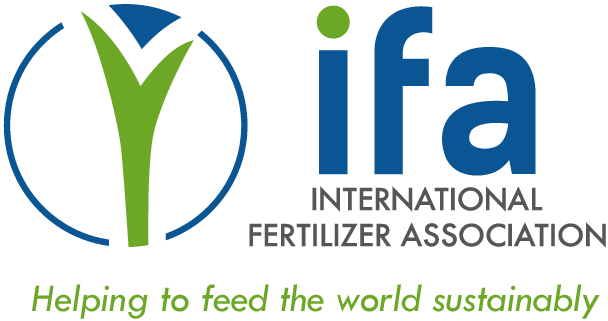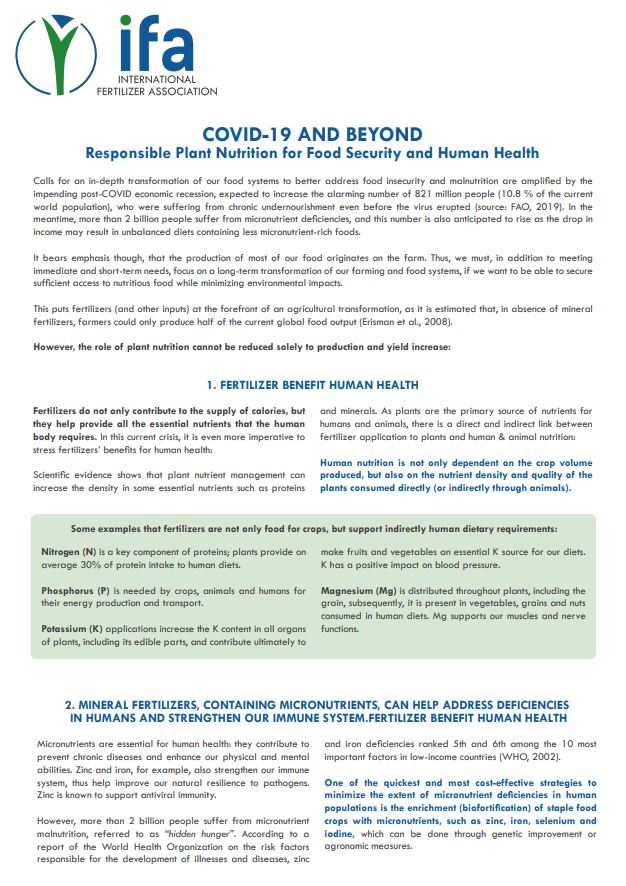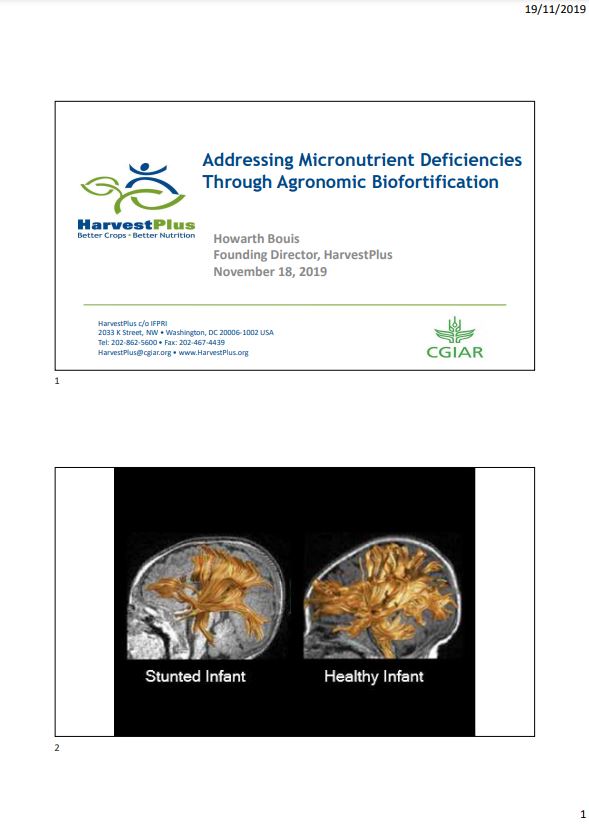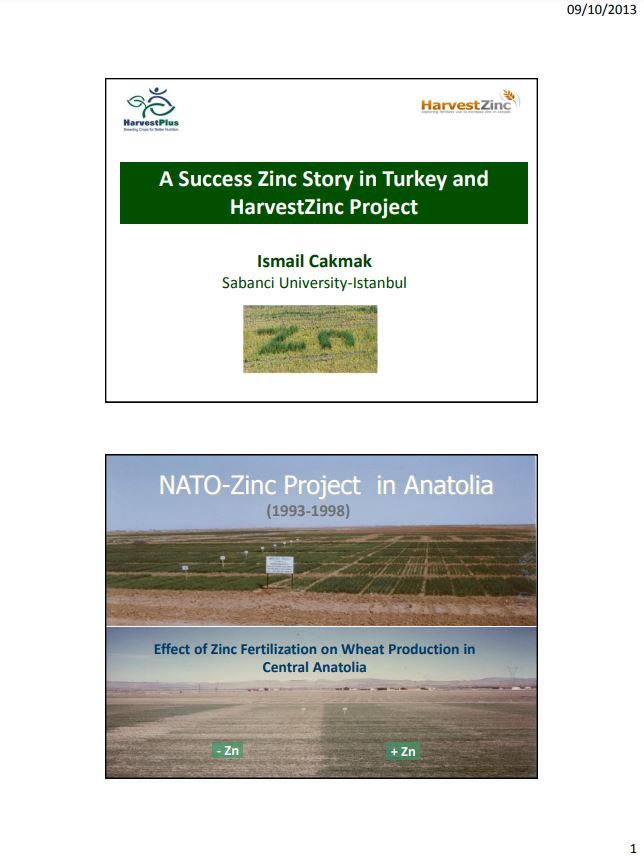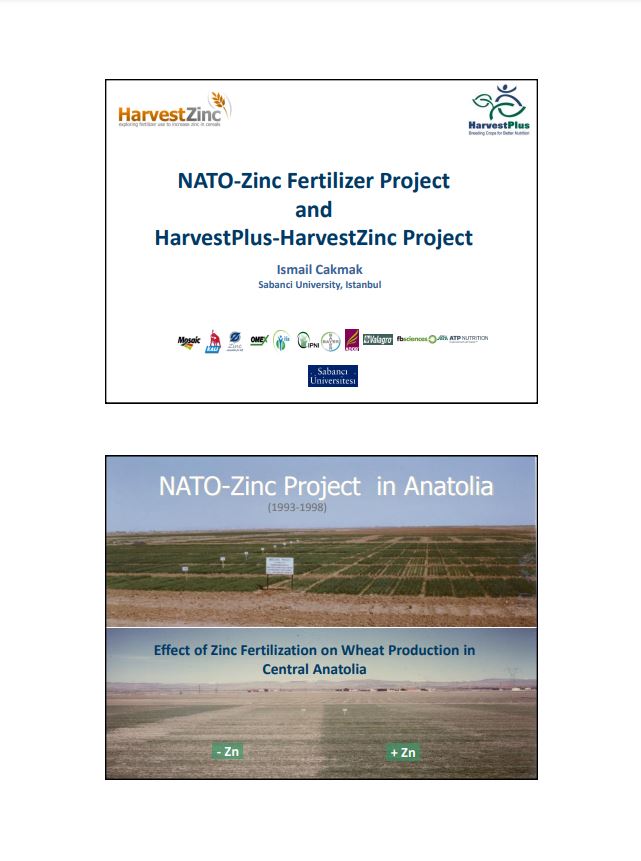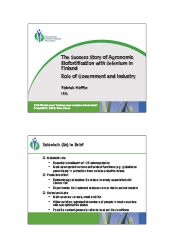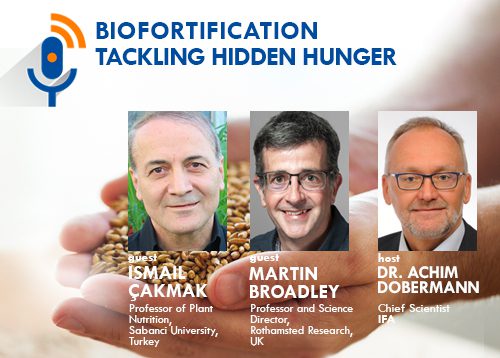Biofortification
nutrition
Biofortification is the process of increasing the nutritional value of food crops through conventional plant breeding techniques, using enriched fertilizers or irrigating soil and crops with the nutrients they lack.
Maize, pulses, rice or wheat can provide a lot of calories but still lack sufficient concentrations of Vitamin A, for example, and micronutrient minerals such as iodine, iron, selenium and zinc.
This can result in ‘hidden hunger,’ harming children’s brain development and physical development, and keeping immune systems low in adults. Mineral fertilizers that are fortified with micronutrients can help – as part of strategies that include farmers, agronomists, public health specialists, governments and the private sector.
